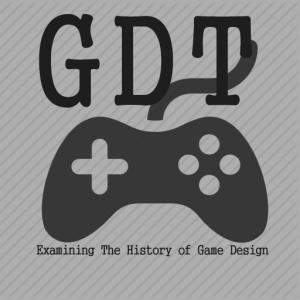From Extraterrestrial to Successful Failure: The Story of E.T.
November 12, 2019 9:28 pm Public Opinion and Game Reviews, Weekly ThemesBy now, we’ve read about innovative revolutions in visual entertainment history that stemmed from humble science fair beginnings. We’ve learned through research and reviews how certain titles fared over others, and how some shaped a fundamentally new era of advancement. As any creator will tell you with indulging in extended periods of extreme creative effort: burnout is inevitable. With strict timelines for creation, production, and shipment of new video game titles, several rounds of week-long crunches–mandatory overtime to oversee the final pushes of video game development–the very release of a new game is a gamble in and of itself. Several factors, investments, and other outside aspects coalesce into a single cartridge, and if the reviews continue to be poor–even outright terrible sometimes–the losses in all aspects continue to amass. This week, I would like to talk about one of the most tremendous failures in video game history that attributed to the collapse of Atari and their two in-home systems, as well as mark the end of the first Golden Era–expunging the console craze if only for a moment–the release of Atari’s ET the Extra Terrestrial.
Essentially this game was meant to be a simple, randomly-generated puzzle game, where the player would have to navigate through the in game assets to obtain an extraterrestrial telephone (get it? To phone home? Everyone else did, too). It had been green lit and licensed by Stephen Spielberg himself, and responsibility for development of this project was given to Howard Scott Warshaw, a former developer for Atari. With this much of a simple premise, a green light from Spielberg, and overwhelming support and adoration of the original film by the public, it had seemed every piece of the puzzle was about to fall perfectly into place. The heads at Atari had thought so too, claiming due to the success of Warshaw’s previous two titles (one including Raiders of the Lost Arc from Indiana Jones) and the success of console sales, this new title would only further boost the numbers.
Here we arrive at the oldest fundamental, most vital and yet often the most ignored caveat to developing video games: rushed development. Warshaw himself only had five weeks to conceptualize, plan, and code/develop the game, with the rest of the team having only a week to advertise the game, develop and ship the cartridges. It’s a fundamental fact of life that humans cannot concentrate under excessive stress for weeks at a time; at least not as efficiently as we can without said added stress. Due to this fact, Howard had overlooked a rudimentary flaw within the game’s code: map stability was almost non-existent, so the player would go through one warp zone and end up in a completely new location; going back through the same zone would transport the player to another random place. Along with a cavalcade of other minor glitches and errors, the game was shipped off. Upon initial release, the sales were overwhelming, clocking in at over a million copies worldwide. Though within a few months, public opinion about the game had completely shifted.
The public began to see and experience firsthand the broken code and rushed development of this title and quickly brought their copies back, often demanding justified refunds. This negative review surged through the Atari studio, and ushered in the start of the first severe video game crash of its history. Within a decade, two members of Atari had come and gone through ownership, recording bigger and bigger losses as the years passed. Their team dropped from a massive ten thousand to only a couple thousand within a few months. And ET the Extra Terrestrial, even today, is regarded as one of (if not the) worst video game ever produced. To its creator, the humbled Howard Scott Warshaw, however, the simple fact that his game is continued to be mentioned in discussions more than twenty years later, makes the game a success in its nature of entertainment.
I hope you enjoyed today’s entry into the history of video games. As always, I hope you have a great rest of your day!
Cheers,
Ethan

